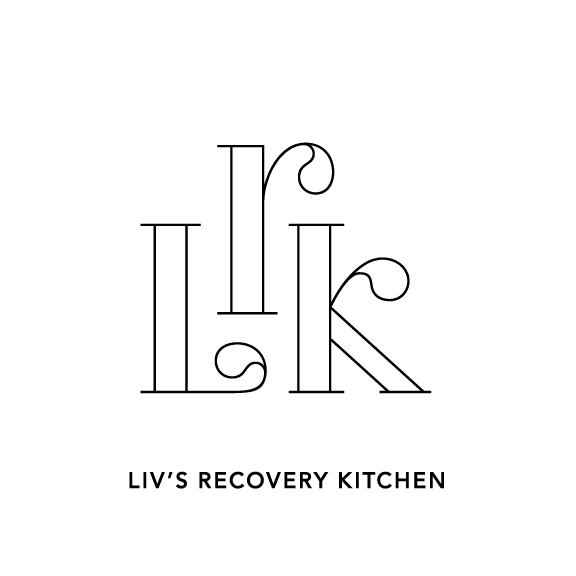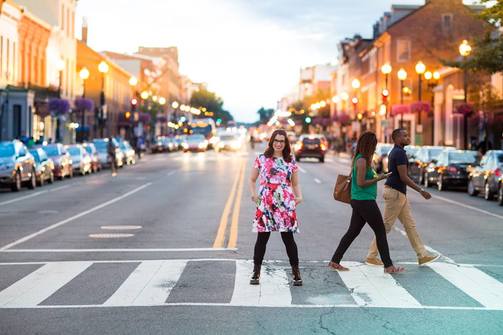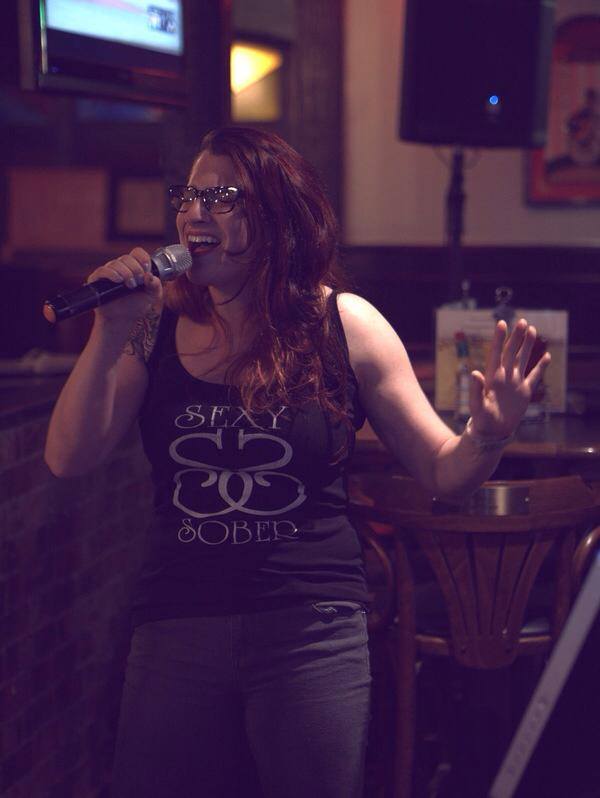Interview with Laura Silverman
This week, Liv interviewed Laura Silverman, of The Sobriety Collective. A resource and blog created to celebrate recovery, especially through creativity, in all its forms. In 2007, at age 24, Laura pulled a 180 and went from insecure, anxious binge drinker to newly-minted sober 20-something. This scary (but, for her, absolutely necessary) step catapulted her into a journey of long-term recovery. She believes in the raw power of storytelling, mental health awareness, and YOU. Check out Laura’s recovery, mental wellness, and creativity podcast, Bad Story Pod, on the Since Right Now Podcast Network, today!
Interview with Laura Silverman
Liv: What I particularly love about your site (www.thesobrietycollective.com) is the range of content; a blog, sobriety collaboration, POD casts and a shop. For those readers who have not come across your site, what does The Sobriety Collective encapsulate for you?
Liv: What I particularly love about your site (www.thesobrietycollective.com) is the range of content; a blog, sobriety collaboration, POD casts and a shop. For those readers who have not come across your site, what does The Sobriety Collective encapsulate for you?
Laura: Wow. When you put it that way, it *does* seem like a lot! It’s been a slow and organic growth from day one. Always growing, always changing, always incorporating new ideas (some of which take off, others don’t). What I would say is that The Sobriety Collective is really more a RECOVERY collective, including recovering from drug/alcohol addiction or abuse, but just as much, a mental health recovery collective. Both are intertwined for me and both I’m equally passionate about.
My initial goal when starting this little hub on the web was to create a program agnostic community for creative sober folks. Writers, comedians, musicians, artists, chefs, entrepreneurs, athletes--all kicking ass and taking names--and staying sober. I welcome people who have 12 step backgrounds, but this isn’t a 12 step community. This is a sobriety/recovery community with a strong emphasis on creativity and quirkiness and following one’s heart.
Liv: When I read your story I was blown away, not only with identification, but the increasing devastation and danger our drinking caused. Looking back, how would you describe that life?
Laura: It’s just that, Liv. Another life. It’s going to sound so cheesy or like a religious testimonial (I have the former in spades; the latter? Not so much), but I feel like I’ve been reborn. This is a new life I’m living. Entirely. I fucked up pretty badly in my past. I wasn’t and am not a bad person, but I did some pretty shameful things. I’m not proud of all my decisions. I hurt family and close friends and most of all, myself. I really left a trail of destruction behind me, which I can see with full clarity now. My therapist says that you can’t change the past and you can’t live in the future; you have to live in the present, which is a gift--or something like that.
I think he’s onto something….
Liv: What would you describe as the catalyst or ‘rock bottom’ that made you choose to get help?
Laura: I had many, many bottoms. None of which I interpreted as a call to action. But the last bottom--my rock bottom--shook the living daylights out of me. This time, things felt different. This time, I’d make a change that sparked a new way of living. (Gosh, I sound like an evangelist. But in many ways, I am--an evangelist for choosing a healthy path, for becoming the best version possible of YOU).
As I was saying, it was a metaphorical dark and stormy night in New York City. July 13, 2007. I was in town to see a concert at Madison Square Garden. The short version of the story is that I binge drank all day, browned out throughout and by the end, completely blacked out. After said blackout, I passed out and then came to several hours later in a hospital bed, away from my purse, shoes, “friends,” and any other semblance of safety. Somehow, in a venue with tens of thousands of people, my purse had been returned to a security guard. Nothing stolen (ID, phone, inhaler for misdiagnosed exercise-induced asthma [I’d come to find my real diagnosis was anxiety], money, and bus ticket back to DC --all intact). I took it as a sign from a “higher power” or a force greater than me--or maybe it was a freaky coincidence--that I had a chance to make some serious changes.
Once I got back to DC, I called for help. And that was the beginning of this beautiful journey.
Liv: You state in your ‘about’ section that ‘the program...doesn’t entirely work for me.’ In the experience of friends of mine, that can be met with quite dissociative behaviour; Can you describe your experience of 12 steps, and what didn’t work for you?
Laura: They say in AA to “take what you want and leave the rest.” There are so many amazing lessons I learned from my time in the program*. My first introduction to Alcoholics Anonymous wasn’t by choice; I left after a year. Two years later, I returned by choice and stayed for 18 months...and left again. I practice some principles to this day, as a non-AAer, yet have an abundant recovery menu that works for me. Therapy, being in nature, fitness, relationships with friends and family, music (playing and listening), cooking, self-care, self-care, self-care. I’m starting to get into yoga and I’m considering incorporating 12 step and SMART recovery meetings again, to stay open minded. What I didn’t like about the traditionalist AA meetings I went to were some of the people more so than the program itself. It felt cult-like, overtly cliquey, and exclusive of other recovery tools. I also felt stifled and couldn’t be “out and proud” about my recovery/sobriety. These things all catapulted me into starting #TheSobrietyCollective.
*Note: Laura has written about this on her blog (link here)
Liv: You mention that your recovery encompassed outpatient rehab, cutting ties with toxic people and toxic habits, and seeking help from mental health professionals. You go on to say that you believe mental illness and substance misuse are closely intertwined; what do you mean by that?
Laura: You’re very observant :) Yes, my first steps were to cut toxic ties, go to a physical outpatient rehab facility, and start addressing issues that were plaguing my mental health. As we delve deeper into mental illness, this can get a little neuroscience-y so don’t quote me verbatim, but dual diagnoses are increasingly common. Actually, I just went on the Substance Abuse and Mental Health Services Administration (SAMHSA) website. SAMHSA just schooled me. Apparently dual diagnoses are now called co-occurring disorders. According to SAMHSA’s 2014 National Survey on Drug Use and Health, approximately 7.9 million adults in the United States had co-occurring disorders in 2014. That’s kind of a lot of people, don’t you think? Bipolar disorder and alcoholism; depression and drug addiction; panic/anxiety and alcohol abuse; Obsessive Compulsive Disorder and any of the above. When one has a mental illness, statistically speaking, that person is then more likely to have a substance use disorder.
This is a fantastic resource for co-occurring disorders: http://www.samhsa.gov/disorders/co-occurring.
Boom.
Science. And public health. And....next question, please!
Liv: You express that in not going to meetings, doesn’t make you any less of a sober person; can you elaborate?
Laura: I’ve had the unique experience of being a reluctant AAer, a gung-ho AAer, and a non-AAer. A lot of what I heard while in the rooms was “meeting makers make it.” In other words: you go to to meetings, you stay sober. You don’t go to meetings, you run the risk of relapse. And while AA has no monopoly on recovery, many of its members illustrated to me, in their way, that it was the ONLY way to get/stay sober. If I didn’t go to meetings, I wasn’t truly in recovery. I was a dry drunk and white knuckling my way through life.
I’ll admit, there have been times in my sobriety/recovery that I haven’t been the best version of myself; when I get that way, I have to re-evaluate my behaviors and dig inside to see what’s causing me to be squirmy. That doesn’t mean I’m not sober. It just means I’m human. I’ll assure you there are plenty of people who *do* go to meetings, practice the program, have sponsors and sponsees, and aren’t necessarily model citizens of sobriety. But I’m not here to take their inventory, as they’d say ;) I’m just trying to say, maybe not so articulately, that everyone has their own way. What works for you is just as valid as what doesn’t work for another and vice versa, as long as it keeps you from picking up a drink or drug. And in abstaining from the very substances that caused us so much misery, we can then work on ourselves. Progress, not perfection.
Liv: One of the main things I love about your recovery philosophy is that you shout about it. Do you think anonymity is outdated? What is your view on it? Laura: My understanding of anonymity now is so far removed from what I thought it was only a year ago. When I was an AA-er, I was told that “what you hear in the room stays here when you leave here; hear hear!” Obviously the point of anonymity as it relates to what people share in meetings is that you shouldn’t go blabbing about you see it at meetings, especially if that person has a sensitive job, family history, etc. The principle of anonymity also relates to AA not wanting anyone to speak on behalf of the program; in the case someone relapses, AA does not want to be nor should be held responsible. Principles over personalities. Those I can sign off on, happily.
What I think is outdated is that people are still afraid to share their stories or their recovery for fear of being shamed. The stigma is still very strong, even in 2016, which itself is a shame (pun intended). To be fair, the stigma has lessened thanks to the tireless work of so many powerful people--but in no way has it gone away entirely. That’s even more of a reason to need strong recovery advocates to show that we can rise above our situations and become productive members of society.
You know, sometimes I wonder if people think we, as recovery advocates, are self-congratulatory because we talk about the power of our stories all the time. Like, look at me, I abused “XYZ” like I shouldn’t have but now I don’t! Yay! And I wonder if society thinks that we should even celebrate because we went down a path that “normal” people don’t usually go down. Why should we shout on the rooftops if we engaged in criminal behaviors or abused drugs and alcohol? We’re not celebrating people who can drink moderately, so why are we celebrating former addicts? But here’s the rub: alcohol and drugs are toxic. Some are legal, for whatever reason, and some aren’t. A person ingesting a toxin “responsibly” is still ingesting a toxin. And whether or not we get into the disease model, once someone drinks or uses drugs, cravings can and do engage. Like a light switch. So the brain is activated by the very substance that one chooses to ingest--some of which has been heavily marketed to said person (I’m looking at you, Big Alcohol). It’s no wonder that a person can get hooked, easily. So to unhook oneself and to pull a 180, ditch substances, and become a lover of life is, in my humble, and in this case asked for, opinion is truly a marvel. And should be celebrated.
A couple of final thoughts on this:
I do believe everyone has the right to their own story, whether or not they want to be public.
and
Without AA there would be no recovery movement, as varied as it is now, today. So I am truly grateful to the program that started it all.
Liv: You use the hashtag #recoveryyourway, how would you describe your recovery strategy? What keeps you motivated in your sobriety?
Laura: I kind of touched on it above, but my strategy is finding something that works for me, no matter what anyone else thinks (and within reason, of course) and going with it. My motivations are being a good daughter, sister, and friend--and of course doing everything I’m doing with The Sobriety Collective! The latter enables me to be an advocate for addiction recovery and mental health--and I get to connect with wonderful people around the world.
Liv: You host a number of stories from women in recovery who have battled with food addiction (Katherine Arati Maas, of Within the Flow and Sarah Roberts of Sarah Talks Food) and share their experience of overcoming that; what has been your experience with food and your relationship with your body, and how has it changed since being in recovery?
Laura: Ah, yes. Food. I’ve found that just because I got rid of alcohol, I haven’t gotten rid of addictive tendencies. I shop (not as much as I used to but still more than I probably should) and eat. Luckily I’ve never had truly disordered eating but I have a warped sense of portion control and love my sugar. I have to give it up to my fellow women in recovery who’ve recovered from food addiction because you can’t get rid of food; you can get rid of alcohol or cocaine or marijuana or any number of toxins, but you need food to survive. So to retrain the body and mind to see food as fuel (and the occasional treat) is a massive thing that should be celebrated and unfolded for others to learn from. Katherine and Sarah both have such beautiful stories, and both so relatable, that it was an easy yes for me to share them. Body image, on the other hand, is a daily thing. Sometimes I feel like a #boss. Other times, not so much. My body is my temple and all that sacred woo woo stuff, but it’s still cause for self-scrutiny. Tummy rolls and back fat and jiggly arms and cellulite (god, I just love being in my 30s!) despite a good exercise routine and an attempt to eat healthier definitely frustrates me. I mean, FRUSTRATES me. We’re all our own worst enemies. And because I have OCD, I tend to over-obsess. I think we all need to practice more self-love, self-care, and realize that our bodies are capable of strength and power and so much more than we’ll ever give them credit for.
Liv: To conclude, one of my readers wants to ask what brings you joy in recovery?
Laura: YOU. Seriously. This year has been life changing. Connecting with others in recovery makes my recovery stronger. Knowing there are a multitude of perfectly viable paths to take, almost as many as there are people, is empowering. Liv: And your top five recovery tools:
Laura:My top five happy tools in recovery are…
- Therapy
- Exercise (and food!)
- Nature
- Music and creativity
- Family, friends, interpersonal relationships.
Thanks so much for taking the time out of your busy life to answer these questions! Keep rocking the free world!
Laura: Thank *you*, Liv! If we can help just one person, our experiences won’t have been in vain.







